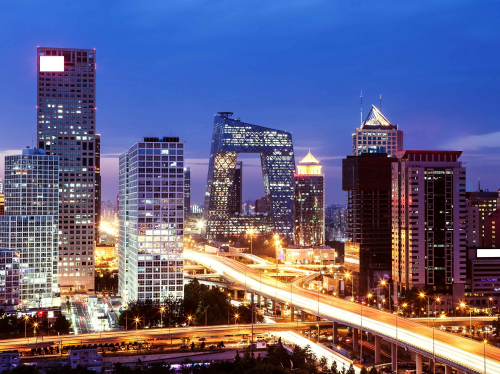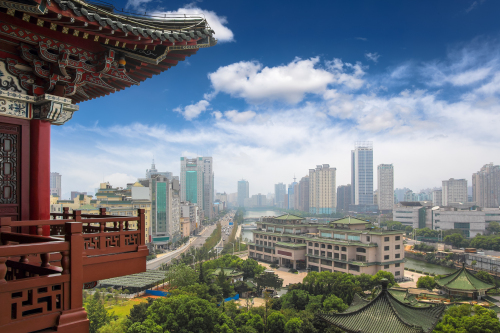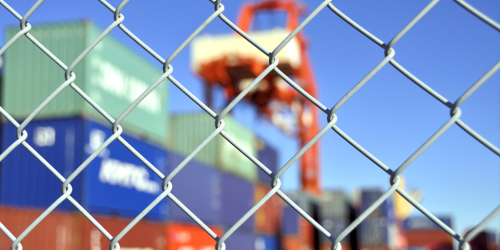Continue Its Growth Momentum
By Morgan Brady
 纵观2018年年初的经济水平,我国的各项指数依然保持良好的增长势头,其中销售经理指数从1月份的52.1上升至52.5,这反映出了今年年初中国的销售水平和经济增长的信心。价格上涨、招聘岗位增多的利好消息影响了大部分行业。与此同时,中国钢铁市场上的标准普尔指数反映出了对钢铁的低需求。尽管销售经理指数良好,制造业环境也不错,但情况并非完全明朗,因为中小企业的信心指数已跌至2017年3月以来的最低水平。根据路透社进行的一项调查结果显示,有70多家机构的经济学家认为今年经济增长将趋向放缓。
纵观2018年年初的经济水平,我国的各项指数依然保持良好的增长势头,其中销售经理指数从1月份的52.1上升至52.5,这反映出了今年年初中国的销售水平和经济增长的信心。价格上涨、招聘岗位增多的利好消息影响了大部分行业。与此同时,中国钢铁市场上的标准普尔指数反映出了对钢铁的低需求。尽管销售经理指数良好,制造业环境也不错,但情况并非完全明朗,因为中小企业的信心指数已跌至2017年3月以来的最低水平。根据路透社进行的一项调查结果显示,有70多家机构的经济学家认为今年经济增长将趋向放缓。
北京政府去年为支持基础设施建设发展划拨了大量的财政支出,这是高增长率背后的一个主要原因。早在2017年的12月,世界银行就提高了对中国经济增长的预期,对2018年和2019年的增长预估分别为6.4和6.3。世界银行同时指出了房价的不确定性:由于信贷条件更加苛刻,房地产市场增长有可能趋向放缓。另一方面,国际货币基金组织预计,2018年和2019年经济增长指数分别为6.6和6.4。
此外,不少分析师认为,随着美国推进经济改革,许多企业会发现美国的商业环境愈加适宜发展,这可能会导致资本从中国国内流向美国本土,使美元上涨、人民币下跌,并对中国经济增长产生负面影响。同时,中国人民银行宽松的货币政策会有所收紧,这可能会影响我国的货币贬值。而美国反对中国的保护主义政策也可能会形成制约中国经济发展的另一个因素。自2017年末开始,美国对中国的各个企业开始进行知识产权调查,并限制从中国进口钢材。其他受影响的行业还有铝和太阳能电池等。不过这种调查不太可能导致两国之间的贸易战,尤其考虑到双方利益攸关,合作依然良好,毕竟美国仍然是中国的主要进口国,而中国依然是美国的主要债权国,合作还是主流。
虽然挑战一直存在,中国仍将继续从制造业经济转向以拉动内需为导向的消费型经济,2018年中国经济预计将在平稳中有所增长。
In a positive development, the Chinese Sales Managers index, which measures the sentiment of sales managers in the economy, has risen up to 52.5 points in January from a reading of 52.1 points last December. This reflected higher confidence in upcoming sales levels and economic growth in China this year.
Similarly, China’s Satellite manufacturing index has shown the best reading in months, indicating better manufacturing conditions, especially as the prices are rising, and companies are hiring more. The positive sentiment covered most sectors but a low reading of The S&P Global Platts China Steel Sentiment Index reflected low expectations of high demand in the upcoming months for steel mills.
But despite the better sentiment by sales managers and better manufacturing conditions, the picture was not entirely bright, as the confidence of small to medium enterprises has fallen to its worst level since March 2017.
Growth May Be Slowed Down This Year to Address Key Risks
 According to the results of a survey conducted by Reuters, the opinions of economists from 70 institutions have reflected a bias towards slower economic growth this year as the government continues in its effort to crack down on risks associated with heavy debt and focus on a more sustainable long term growth.
According to the results of a survey conducted by Reuters, the opinions of economists from 70 institutions have reflected a bias towards slower economic growth this year as the government continues in its effort to crack down on risks associated with heavy debt and focus on a more sustainable long term growth.
The government in Beijing had indulged in vast spending last year to finance infrastructure development and this was a factor behind higher growth rates last year.
Back in December 2017, the World Bank had raised its 2017 growth outlook for China but kept the outlook same for 2018 and 2019 at 6.4 and 6.3 respectively. This is also due to China’s effort to set controls on credit and lending.
World Bank has also pointed to uncertainty regarding housing prices, which was among the factors leading to modest projections. The real estate market could slow down also as a result of tighter credit conditions.
IMF, on the other hand, expected growth to increase moderately and rise above forecasts due to synchronized global recovery that has not been witnessed since 2010. The IMF projected an economic growth of 6.6 and 6.4 in 2018 and 2019 respectively.
 Many Analysts Share the Same View
Many Analysts Share the Same View
For many analysts at global institutions, there was concern regarding a less accommodative monetary policy by the People’s Bank of China, how that could impact credit in the country as well as the value of currency. A tightening of monetary policy could also lead to higher risk of credit default.
As the US moves forward with its reform, many businesses will find that business conditions in the US are becoming more favorable. This could lead to capital outflows from China to the US, causing the dollar to rise and the Yuan to fall, as well as negatively affect China’s growth.
 Protectionism May Be another Factor Restricting Growth
Protectionism May Be another Factor Restricting Growth
Very early on, even before Mr. Trump became President, he had signaled a protectionist policy against China during his presidential campaign. Late in 2017, the US launched an investigation into intellectual property rights practices by Chinese businesses as well as restricting steel imports from China to the US. Other protected products include aluminum and solar cells from China. The US policies are likely to have a negative impact on China’s economic growth since it is the largest exporter in the world and exports constitute 20% of its GDP.
In January 2018, the US released a report depicting China’s violations of the World Trade Organization policies. Moreover, an in-depth examination of the relationship between American and Chinese businesses led to the conviction of the Chinese product Sinovel in case of stealing trade secrets from the superconductor corp.
But this escalation from the US is not likely to lead to a trade war between the countries, especially considering how the two sides are better off cooperating than competing in global markets. The US remains a key importer from China, and China remains a key creditor to the US. In addition, need for cooperation stems not only from the mutual economic benefit but also from the need to resolve geopolitical tensions that require global coordination and response, such as the case of the North Korea peninsula.
Conclusion
China continues its move from a manufacturing based economy towards a more consumption based economy driven by domestic demand. President Xi Jinping wants the country to have a bigger role in innovation and is pushing forward technologies. Yet, there are hurdles along the way.
Changes in the credit cycle seem to be taking off as China moves towards tighter monetary and credit conditions. Typically, bankruptcies might occur in less solvent businesses. But in case they do, the government is likely to prevent this from becoming a wider scale effect. Other factors include potential trade wars and changes and turbulence in global demand levels.
But although analysts are expecting slower growth in 2018 due to cracking down on credit, it can be better considered as a controlled growth, where businesses have to adjust. Despite the crackdown on debt by the government, growth momentum is still strong, and the effect is likely to be limited unless interrupted by major economic or geopolitical events.